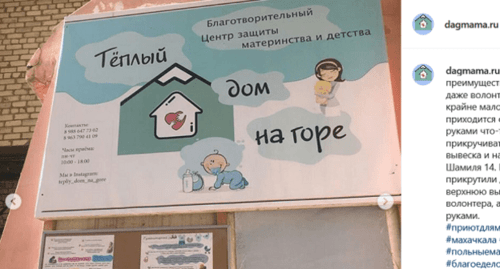
24 June 2020, 13:13
Shelter for violence victims in Makhachkala changes rules after resonant publications
The work of the organizations engaged in defending victims of domestic violence should be open, including for mass media, the press complaints panel has stated in response to the claims of the "Mountain Warm House" shelter to Svetlana Anokhina's publications. Meanwhile, the rules for the shelter inhabitants were changed after the resonant publications.
The "Caucasian Knot" has reported that Svetlana Anokhina, a Dagestani journalist, reported on January 31 that the managers of the above Makhachkala shelter had tried to evict their inmates from the shelter for non-compliance with shelter rules, in particular, a ban on contacts with reporters.
After Ms Anokhina's publications, the shelter sent an appeal to the above press complaints panel about "a slander and custom-made nature of critical publications," the panel says in its Facebook page.
"The panel has found no presence of slander and custom-made nature in the publications," the panel gave its conclusions on its page in social networks on June 17. Besides, the panel has recognized that "the activities of non-commercial organizations specializing in the defence of victims of domestic violence should be as open as possible, including for mass media."
The crisis shelter "Mountain Warm House" is fully operational; now, two women who found themselves in a difficult life situation undergo rehabilitation there, Evgeniya Velichkina, the head of the shelter, told the "Caucasian Knot" correspondent.
After Svetlana Anokhina's criticism, some behaviour rules of the shelter were changed, Ms Velichkina has specified, noting that there was no complete ban on contacting journalists, but there was a ban on contacting media in the territory of the shelter.
This article was originally published on the Russian page of 24/7 Internet agency ‘Caucasian Knot’ on June 24, 2020 at 02:45 am MSK. To access the full text of the article, click here.
Author: Magomed Akhmedov Source: CK correspondent





Комментирование через Кавказский узел